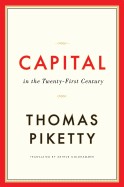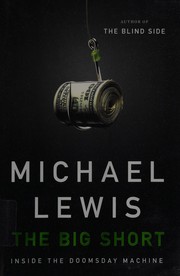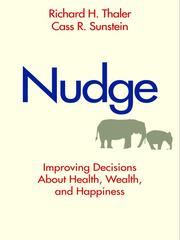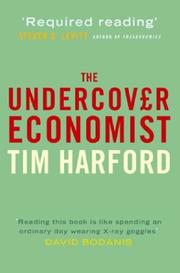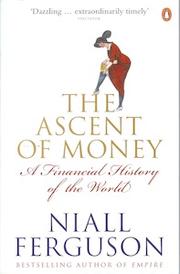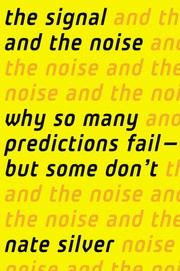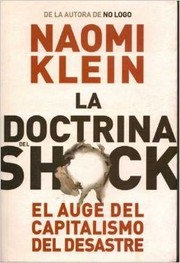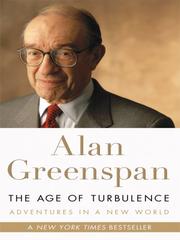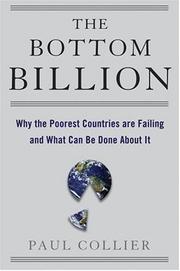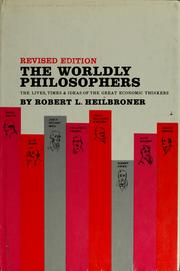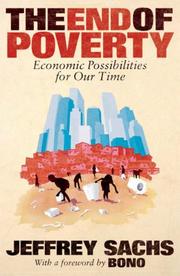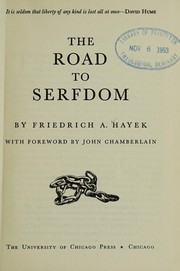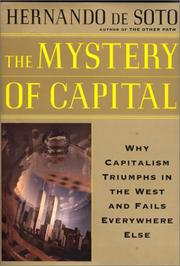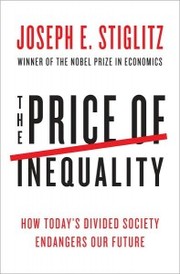Are you eager to deepen your understanding of the world of economics? Look no further! Dive into our curated list of the 20 best books about economics that will broaden your knowledge and stimulate your curiosity. Whether you’re a student, a professional, or simply an avid reader interested in the subject, these books on economics cover a wide range of topics, from macroeconomics to behavioral economics, offering valuable insights and perspectives. Get ready to explore the complexities of the economy and its impact on society through the pages of these enlightening reads.
Contents
- 1 20 Best Economics Books
- 2 Capital in the Twenty-First Century
- 3 Freakonomics
- 4 The Big Short
- 5 Nudge
- 6 Thinking, Fast and Slow
- 7 The Wealth of Nations
- 8 Misbehaving
- 9 The Great Escape
- 10 The Undercover Economist
- 11 The Ascent of Money
- 12 The Signal and the Noise
- 13 The Shock Doctrine
- 14 The Age of Turbulence
- 15 The Bottom Billion
- 16 The Worldly Philosophers
- 17 The End of Poverty
- 18 The Road to Serfdom
- 19 The Armchair Economist
- 20 The Mystery of Capital
- 21 The Price of Inequality
- 22 Final Thoughts on Best Economics Books
- 23
20 Best Economics Books
Capital in the Twenty-First Century
by Thomas Piketty
Capital in the Twenty-First Century by Thomas Piketty is a groundbreaking book on economics that delves into the dynamics of wealth and income inequality. Piketty’s extensive research and analysis provide a comprehensive overview of the distribution of wealth and the factors that contribute to its concentration among the richest members of society.
The book examines historical data from various countries to demonstrate how wealth inequality has evolved over time and how it is influenced by economic and social forces. Piketty also presents thought-provoking insights into the implications of this inequality for society as a whole, and offers potential solutions for addressing the issue.
Capital in the Twenty-First Century has sparked widespread discussions about economic inequality and has been praised for its rigorous analysis and compelling arguments. This economics book is a must-read for anyone interested in understanding the complexities of wealth distribution and its impact on society.
Freakonomics
by Steven D. Levitt and Stephen J. Dubner
Freakonomics is a captivating and unconventional book about economics that challenges traditional thinking about the subject. Written by Steven D. Levitt, a renowned economist, and Stephen J. Dubner, an award-winning journalist, the book delves into the unexpected side of economics by applying economic theory to diverse and unexpected real-world scenarios. Through a series of captivating and thought-provoking anecdotes, the authors reveal the hidden economic incentives that drive human behavior in various aspects of life, from crime and education to parenting and sports.
Levitt and Dubner’s unique approach to the subject sheds light on the unexpected connections between seemingly unrelated phenomena, offering a fresh and fascinating perspective on the world of economics. With its engaging storytelling and insightful analysis, Freakonomics challenges readers to think differently about the world around them and the forces that shape it. This economics book is a compelling and eye-opening read for anyone interested in understanding the hidden side of human behavior and the forces that drive it.
The Big Short
by Michael Lewis
The Big Short by Michael Lewis is a fascinating book about economics that delves into the 2008 financial crisis. Lewis tells the story of a few individuals who saw the impending collapse of the housing market and made a fortune by betting against it. Through the lens of these outsiders who were able to see the flaws in the system, Lewis provides a gripping account of the events leading up to the crisis and the people involved.
With his characteristic wit and storytelling prowess, Lewis breaks down complex financial concepts into engaging narratives, making it accessible to readers who may not have a background in economics. The Big Short offers a critical analysis of the financial industry and the factors that led to the crisis, shedding light on the greed, ignorance, and complacency that contributed to the meltdown.
Overall, The Big Short is a compelling and eye-opening book on economics that provides valuable insights into the workings of the financial world and the impact of unchecked greed.
Nudge
by Richard H. Thaler and Cass R. Sunstein
Nudge by Richard H. Thaler and Cass R. Sunstein is a fascinating book on behavioral economics that explores how small and subtle changes, or “nudges,” can have a big impact on our decision-making. The authors delve into the concept of choice architecture, showing how the way choices are presented can influence the decisions people make. Drawing on research from psychology, behavioral economics, and neuroscience, the book provides compelling insights into human behavior and decision-making.
Thaler and Sunstein offer practical examples of how nudges have been used to improve outcomes in areas such as health, finance, and environmental conservation. They also discuss the ethical implications of nudges, addressing concerns about manipulation and autonomy. With its engaging writing style and thought-provoking ideas, Nudge is a must-read for anyone interested in understanding how we make choices and how we can use this knowledge to design policies and systems that benefit society.
Thinking, Fast and Slow
by Daniel Kahneman
Thinking, Fast and Slow by Daniel Kahneman is a captivating exploration of the human mind and its decision-making processes. In this thought-provoking book on psychology and behavioral economics, Kahneman delves into the two systems that drive the way we think: the fast, intuitive, and emotional system, and the slow, deliberate, and logical system.
Through engaging anecdotes and compelling research, Kahneman sheds light on the biases and heuristics that influence our choices, from everyday decisions to major life events. He challenges readers to reflect on their own thought processes and consider the implications of their cognitive tendencies.
This influential book about economics offers valuable insights into the complexities of human judgment and decision-making, providing a deeper understanding of how our minds work and how we can make more informed choices. Whether you’re interested in psychology, behavioral economics, or simply want to gain a better understanding of the intricacies of the human mind, Thinking, Fast and Slow is a must-read.
The Wealth of Nations
by Adam Smith
The Wealth of Nations by Adam Smith is a seminal book on economics that has had a profound impact on the way we understand and study the workings of economies. Originally published in 1776, this influential work is considered to be the foundation of modern economics. In this monumental piece of literature, Smith explores the principles of free-market capitalism, division of labor, and the invisible hand of the market. He delves into the idea that individuals pursuing their own self-interest can inadvertently contribute to the overall wealth and prosperity of society. Smith’s observations and theories on the market, trade, and wealth accumulation have shaped the way we comprehend and analyze economic systems. This book about economics has remained relevant over the centuries and continues to be a significant reference for anyone seeking to understand the complexities of economic activity and its impact on society.
Misbehaving
by Richard H. Thaler
Misbehaving by Richard H. Thaler is a captivating book on economics that challenges the traditional rational economic theory. Thaler, a renowned behavioral economist, takes readers on a journey through the fascinating world of human behavior and its impact on decision-making. Through a series of engaging anecdotes and real-world examples, Thaler explores how people often make irrational choices that defy the assumptions of traditional economics.
Thaler introduces the concept of “nudges,” small changes in the decision-making environment that can subtly influence people’s behavior. He also delves into the implications of behavioral economics for public policy, business, and personal finance. With wit and insight, Thaler encourages readers to rethink their understanding of economics and human behavior, offering a fresh perspective on how we make decisions in our everyday lives.
With its accessible writing style and thought-provoking ideas, Misbehaving is a must-read for anyone interested in behavioral economics and the complexities of human decision-making.
The Great Escape
by Angus Deaton
The Great Escape by Angus Deaton is a captivating book on economics that explores the profound impact of economic growth on human well-being. Deaton, a Nobel Prize-winning economist, delves into the intricacies of development and poverty, offering a thought-provoking analysis of the factors that contribute to global inequality. Through a combination of historical insights and contemporary research, Deaton presents a compelling narrative that unravels the complexities of economic progress and its implications for societies worldwide.
With a keen focus on the intersection of economics and human welfare, The Great Escape offers a fresh perspective on the dynamics of prosperity and the challenges that hinder progress. Deaton’s engaging writing style and wealth of knowledge make this book about economics a must-read for anyone interested in understanding the dynamics of economic development and its impact on human lives. Whether you’re an avid economist or simply curious about the forces shaping our world, The Great Escape is an illuminating and informative journey into the intricacies of global economics.
The Undercover Economist
by Tim Harford
The Undercover Economist by Tim Harford is a captivating book on economics that delves into the hidden forces shaping our everyday lives. Harford takes readers on a journey through the world of microeconomics, using real-life examples and engaging storytelling to unravel the mysteries behind prices, markets, and decision-making. With a keen eye for detail and a knack for making complex concepts accessible, Harford reveals the economic principles at play in everything from coffee shops to supermarkets, shedding light on the intricate web of interactions that drive our global economy.
Through The Undercover Economist, readers gain a deeper understanding of the interconnectedness of economic systems and the impact of individual choices on the world at large. With its insightful analysis and witty prose, this book about economics is a must-read for anyone seeking to grasp the fundamentals of how the world works and how economics shapes our daily experiences.
The Ascent of Money
by Niall Ferguson
The Ascent of Money by Niall Ferguson is a captivating exploration of the history of finance and the role of money in shaping the world. This illuminating book delves into the fascinating evolution of financial systems, from the ancient civilizations to modern times, revealing the profound impact of money on societies and economies. With compelling storytelling and insightful analysis, Ferguson offers a gripping account of the interconnectedness of money, power, and global events, highlighting the pivotal role of financial innovation in driving historical developments. Whether you’re a seasoned investor or simply curious about the intricate workings of the financial world, this book about economics provides a compelling narrative that sheds light on the complex relationship between money and human civilization. With its engaging prose and thought-provoking exploration of economic history, The Ascent of Money is an essential read for anyone seeking a deeper understanding of the forces that have shaped our modern financial landscape.
The Signal and the Noise
by Nate Silver
The Signal and the Noise by Nate Silver is a fascinating book on economics that explores the art and science of prediction. Silver, a renowned statistician and political analyst, delves into the world of forecasting and the challenges of separating the valuable ‘signal’ from the distracting ‘noise’ in data. Through engaging examples from various fields such as sports, weather, and financial markets, Silver demonstrates the importance of understanding probability, uncertainty, and the limitations of our predictive abilities.
Readers will be captivated by Silver’s insightful analysis of the pitfalls of overconfidence and the need for a more nuanced approach to decision-making. Whether you’re a data enthusiast or simply curious about the complexities of forecasting, The Signal and the Noise offers a thought-provoking exploration of the role of statistics and probability in our lives. This engaging economics book will leave you with a deeper appreciation for the challenges of prediction and the importance of humility in the face of uncertainty.
The Shock Doctrine
by Naomi Klein
The Shock Doctrine by Naomi Klein is a compelling book about economics that explores the concept of disaster capitalism. Klein argues that throughout history, powerful elites have exploited natural and man-made disasters to push through radical free-market policies. She delves into case studies from around the world, revealing how crises such as wars, coups, and natural disasters have been used as opportunities to implement economic shock therapy. Klein’s meticulously researched economics book sheds light on the dark side of capitalism, exposing the ways in which economic crises are manipulated to further the interests of the wealthy and powerful. The book offers a thought-provoking analysis of the intersection between politics, economics, and human suffering, making it a must-read for anyone interested in understanding the hidden forces at play in the global economy.
The Age of Turbulence
by Alan Greenspan
The Age of Turbulence by Alan Greenspan is a captivating book on economics written by the former chairman of the Federal Reserve. In this insightful memoir, Greenspan reflects on his time at the helm of the world’s most powerful central bank and offers a unique perspective on the economic challenges and opportunities of the 21st century. Through engaging storytelling and a deep dive into economic theory, Greenspan explores the dynamics of global markets, the impact of technology on the economy, and the role of government in shaping economic policy. With a keen eye for detail and a knack for demystifying complex economic concepts, Greenspan provides readers with a rich understanding of the forces that drive the global economy. Whether you’re an economics enthusiast or simply curious about the inner workings of the financial world, The Age of Turbulence is a must-read for anyone interested in gaining a deeper insight into the forces that shape our modern economy.
The Bottom Billion
by Paul Collier
The Bottom Billion by Paul Collier is a thought-provoking book about economics that delves into the challenges facing the world’s poorest countries. Collier, a renowned economist, examines the complex interplay of factors that keep these countries mired in poverty despite the progress made by the rest of the world. Through a mix of rigorous research and compelling storytelling, he offers insights into the root causes of poverty and the potential solutions to lift these countries out of their predicament.
Collier’s economics book goes beyond the numbers to shed light on the human impact of poverty, exploring how it fuels conflict, instability, and migration. Drawing on his expertise and extensive fieldwork, he presents a nuanced and compelling argument for a fresh approach to international development. The Bottom Billion is a must-read for anyone seeking a deeper understanding of the challenges facing the world’s poorest nations and the potential pathways to a more prosperous future.
The Worldly Philosophers
by Robert L. Heilbroner
The Worldly Philosophers by Robert L. Heilbroner is an enlightening journey through the lives and ideas of the greatest economic thinkers in history. This captivating book delves into the fascinating world of economic theory, exploring the lives and philosophies of influential figures such as Adam Smith, Karl Marx, and John Maynard Keynes. Heilbroner’s engaging narrative style brings the complex ideas of these thinkers to life, making their theories accessible and relevant to readers today.
Through vivid storytelling and insightful analysis, The Worldly Philosophers provides a compelling introduction to the history of economic thought. Heilbroner’s exploration of the evolution of economic theory offers readers a deeper understanding of the forces that shape our world and society. Whether you’re a student of economics, a history enthusiast, or simply curious about the ideas that have shaped our world, this classic economics book offers a thought-provoking and enjoyable read.
The End of Poverty
by Jeffrey D. Sachs
The End of Poverty by Jeffrey D. Sachs is a groundbreaking book on economics that offers a bold vision for ending extreme poverty around the world. Sachs, an influential economist and advisor to several governments, argues that with the right strategies and policies, it is possible to lift billions of people out of poverty within our lifetime.
He presents a comprehensive plan that focuses on key areas such as health, education, infrastructure, and sustainable development. Sachs makes a compelling case for increased global cooperation and investment in the world’s poorest regions, emphasizing the importance of targeted interventions and long-term solutions. Through engaging storytelling and in-depth analysis, he illustrates the complex interplay of factors that perpetuate poverty and offers actionable solutions.
Whether you are a student of economics or simply interested in global development, this book about economics will challenge your assumptions and inspire you to think differently about poverty and progress. Sachs’s passionate and pragmatic approach makes The End of Poverty a must-read for anyone concerned about the future of our world.
The Road to Serfdom
by Friedrich Hayek
The Road to Serfdom by Friedrich Hayek is a groundbreaking book on economics that explores the dangers of government control and central planning. Hayek argues that as a society becomes more regulated and controlled, individual freedoms are eroded, leading to a path of serfdom and tyranny. He warns against the allure of socialism and the belief that government intervention can solve all of society’s problems. Instead, he advocates for a free market economy and limited government interference, emphasizing the importance of individual liberty and personal responsibility. Published in 1944, The Road to Serfdom remains a seminal work in the field of political economy, offering timeless insights into the perils of collectivism and the value of free enterprise. Hayek’s clear and compelling writing style makes this economics book a must-read for anyone interested in understanding the relationship between government, freedom, and prosperity.
The Armchair Economist
by Steven E. Landsburg
The Armchair Economist by Steven E. Landsburg is a captivating book about economics. With wit and humor, Landsburg explores the intriguing world of incentives and trade-offs, using everyday examples to illustrate complex economic concepts. From the economics of dating to the mysteries of supply and demand, this book takes readers on a fascinating journey through the principles of microeconomics. Landsburg challenges conventional thinking and encourages readers to see the world through the lens of economics, offering fresh insights into everyday decision-making. Whether you’re a seasoned economics book enthusiast or a novice looking to dip your toes into the subject, The Armchair Economist is a thought-provoking and entertaining read that will leave you with a deeper understanding of the forces that shape our choices and behaviors.
The Mystery of Capital
by Hernando de Soto
The Mystery of Capital by Hernando de Soto is a groundbreaking book on economics that explores the relationship between property rights and economic development. De Soto argues that the lack of formal property rights in many developing countries is a major obstacle to economic progress. He delves into the reasons behind this phenomenon and presents a compelling case for the importance of formal property rights in unleashing the potential of capital and entrepreneurship.
Through extensive research and case studies, de Soto demonstrates how the informality of property rights hinders the ability of individuals to leverage their assets for economic advancement. He also offers practical solutions for addressing this issue, advocating for the formalization of property rights as a means of unlocking the trillions of dollars of ‘dead capital’ that are currently trapped in the informal economy.
Overall, The Mystery of Capital is a thought-provoking and insightful book about economics that sheds light on the crucial role of property rights in driving economic development and prosperity.
The Price of Inequality
by Joseph E. Stiglitz
The Price of Inequality by Joseph E. Stiglitz is a compelling book on economics that delves into the complex issues of income inequality and its detrimental effects on society. Stiglitz, a Nobel Prize-winning economist, provides a thought-provoking analysis of how inequality has skyrocketed in recent decades, leading to a multitude of social and economic problems.
Through meticulous research and data, Stiglitz paints a vivid picture of the stark disparities in wealth and opportunity, and the systemic injustices that perpetuate them. He offers insightful solutions to address these issues, advocating for policies that promote a fairer distribution of resources and opportunities for all members of society.
With clarity and authority, Stiglitz makes a compelling case for why we must address inequality as a fundamental challenge to our economic and social well-being. The Price of Inequality is a must-read for anyone seeking a deeper understanding of the pressing economic issues of our time.
Final Thoughts on Best Economics Books
There you have it, the 20 best books about Economics that every enthusiast should have on their shelves. Whether you’re a student, professional, or simply curious about the subject, these books offer valuable insights and perspectives on various economic theories, policies, and historical events. From classic texts to contemporary works, this list covers a wide range of topics and authors, making it a comprehensive resource for anyone interested in delving deeper into the world of economics.
Which book about Economics is best?
The best book on Economics can vary with personal preference, but three widely recommended titles are:
- Capital in the Twenty-First Century by Thomas Piketty,
- Freakonomics by Steven D. Levitt and Stephen J. Dubner,
- The Big Short by Michael Lewis.
Each offers valuable insights and could be a great starting point.
What are the best books to learn about Economics?
For those looking to learn about Economics, there is a wealth of literature that can provide a comprehensive understanding of the subject. Some of the most highly recommended books include:
- Capital in the Twenty-First Century by Thomas Piketty,
- Freakonomics by Steven D. Levitt and Stephen J. Dubner,
- The Big Short by Michael Lewis,
- Nudge by Richard H. Thaler and Cass R. Sunstein,
- Thinking, Fast and Slow by Daniel Kahneman,
- The Wealth of Nations by Adam Smith,
- Misbehaving by Richard H. Thaler,
- The Great Escape by Angus Deaton,
- The Undercover Economist by Tim Harford,
- The Ascent of Money by Niall Ferguson
These books offer a range of perspectives on Economics, covering various aspects and approaches to the subject.
What are the best books about Economics?
The best books about Economics are:
- Capital in the Twenty-First Century by Thomas Piketty,
- Freakonomics by Steven D. Levitt and Stephen J. Dubner,
- The Signal and the Noise by Nate Silver,
- The Shock Doctrine by Naomi Klein,
- The Great Escape by Angus Deaton,
- The Wealth of Nations by Adam Smith.
Each offers unique insights into the subject. While these books about Economics are highly regarded, it’s important to note that any list of ‘best’ books is subjective and reflects a range of opinions.
What are the best Economics books of all time?
Choosing the best Economics books of all time can vary depending on who you ask, but five titles that are often celebrated include
- Capital in the Twenty-First Century by Thomas Piketty,
- Freakonomics by Steven D. Levitt and Stephen J. Dubner,
- Thinking, Fast and Slow by Daniel Kahneman,
- The Great Escape by Angus Deaton,
- and The Signal and the Noise by Nate Silver.
Each of these books has made a significant impact in the field of Economics and continues to be influential today.

